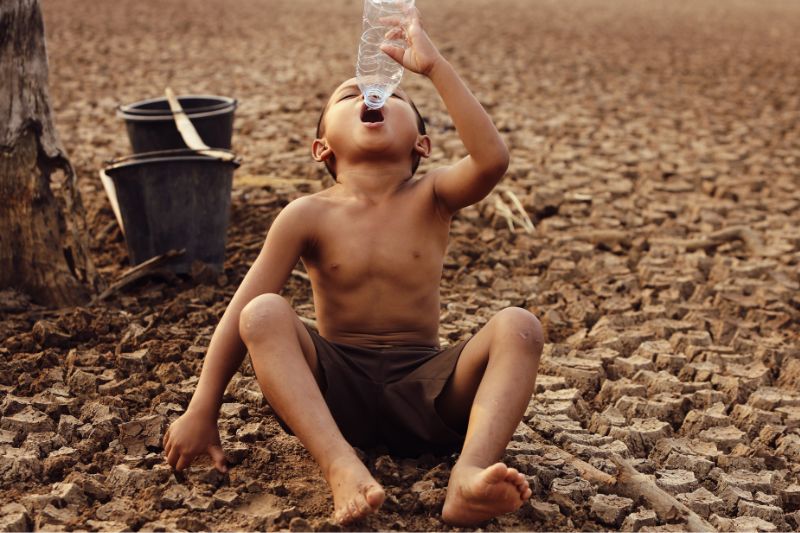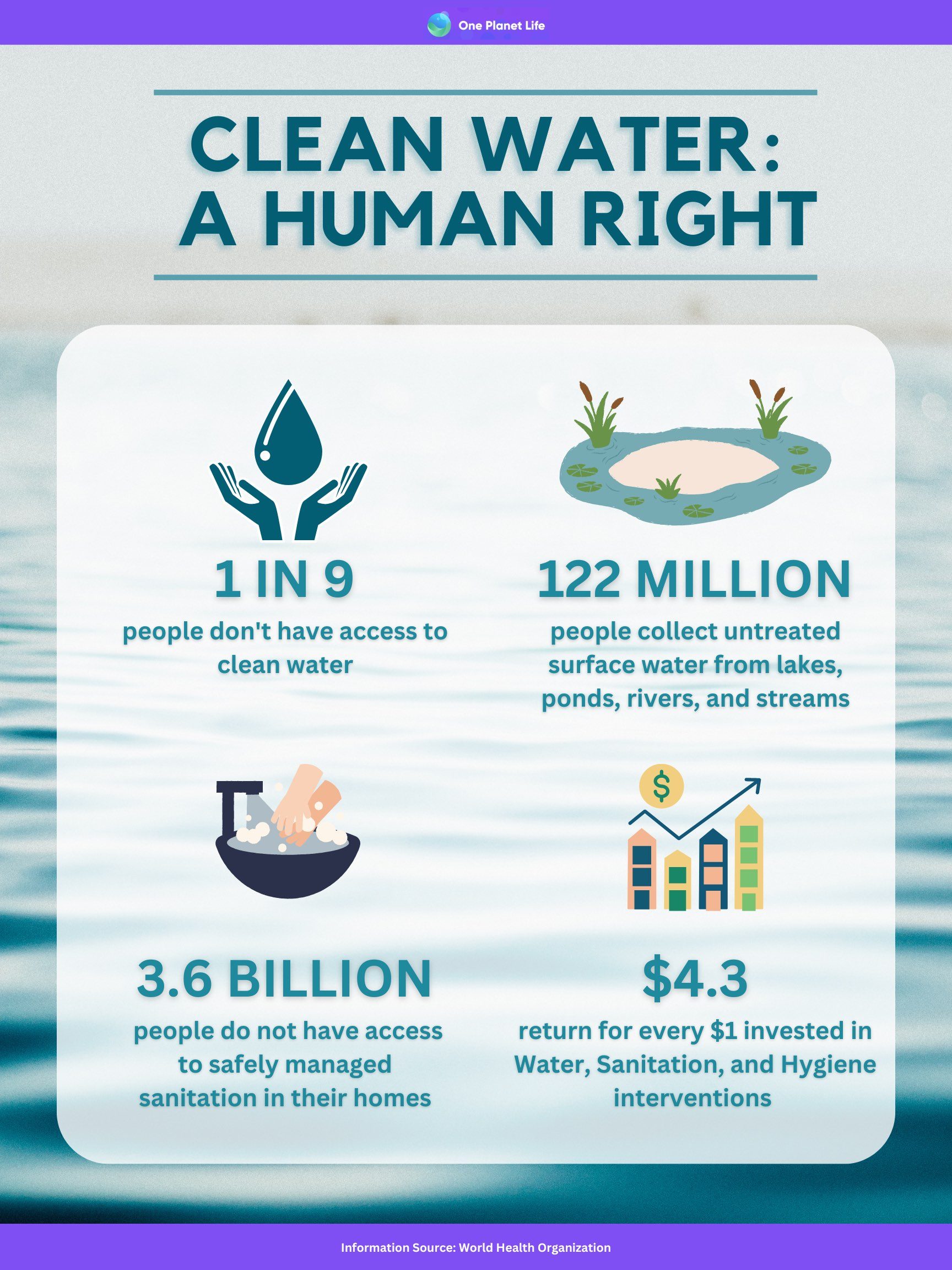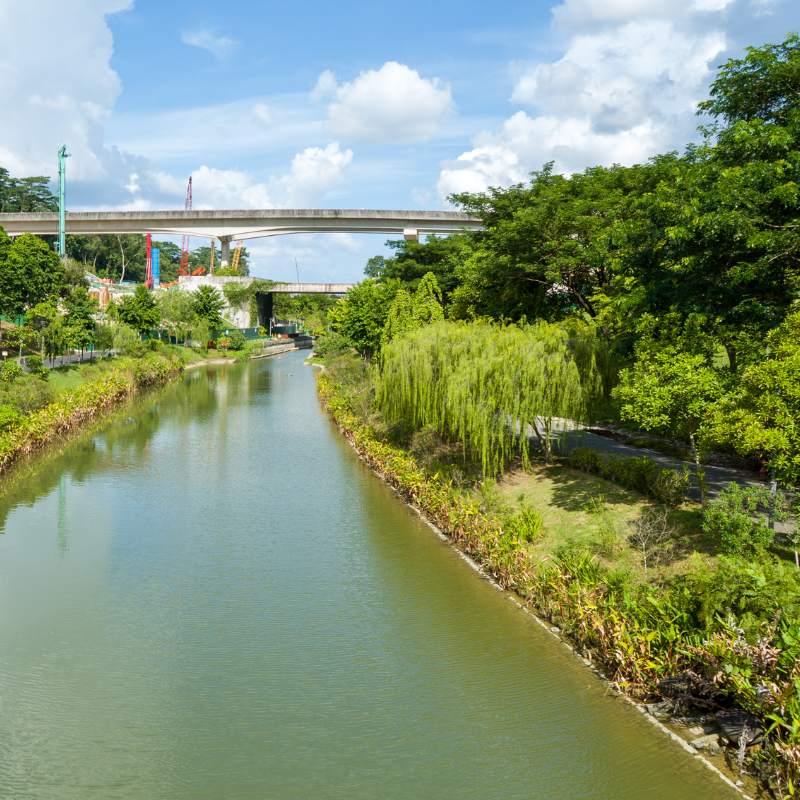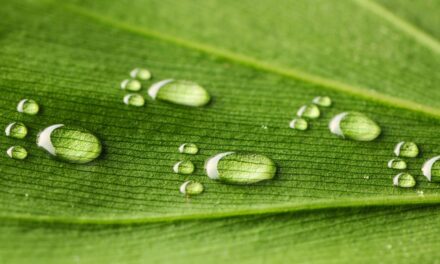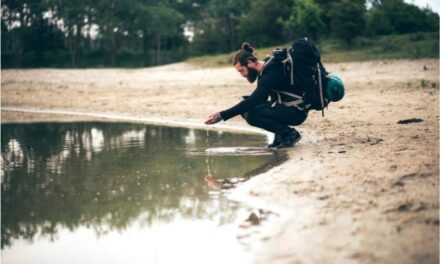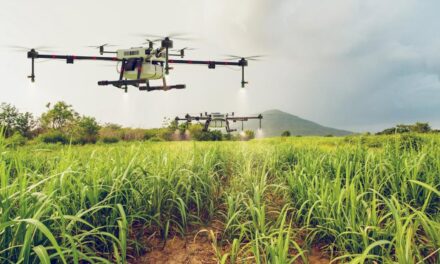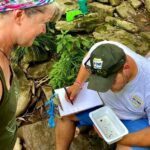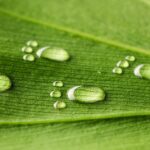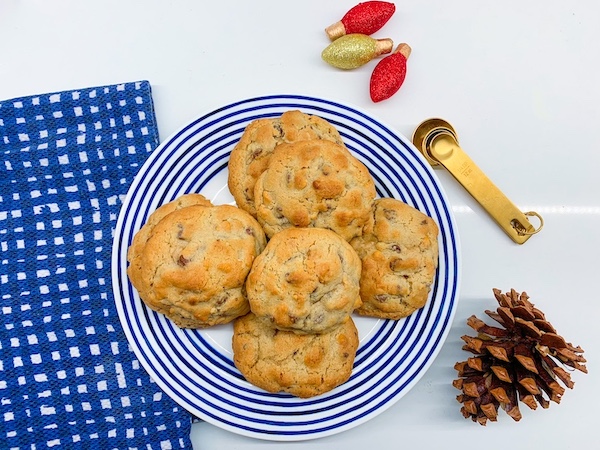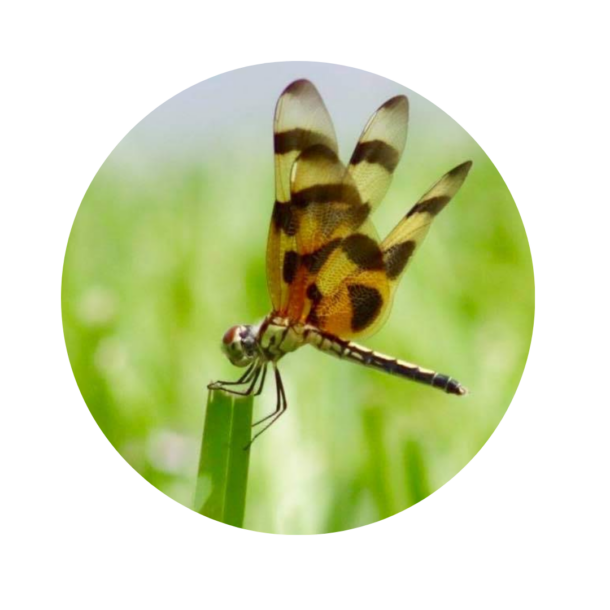Sustainable Solutions for Preserving Our Most Precious Resource: Water
Water is a precious resource that sustains our planet and supports all forms of life. Increasing water scarcity and a growing demand for freshwater is upsetting Earth’s delicate balance. It is crucial for each of us to recognize the importance of conserving water in our everyday lives and actively seek sustainable solutions to cut our water waste for the greater good.
By adopting simple yet impactful practices, we can preserve this invaluable resource and build a more sustainable future for generations to come.
Globally, 1 in 9 people still have no access to clean water.
Water scarcity affects numerous regions worldwide, with consequences ranging from reduced access to clean drinking water to entire compromised ecosystems. In communities where clean water is scarce, the task of seeking out drinking water often falls on the youngest family members. They bear the burden of walking miles each day to fetch clean water from streams and ponds.
In the U.S. alone, more than 2 million people live without basic access to safe drinking water and sanitation, according to a report from the US Water Alliance. An alarming 44 million Americans are served by water systems with recent health-based Safe Drinking Water Act violations.
Access to clean, safe drinking water disproportionately affects low-income and minority communities.
Native American households, for example are 19 times more likely than white households to lack indoor plumbing. In fact, research by Michigan State University went as far as to say that race is the strongest predictor of water and sanitation access nationwide and that poverty is a key obstacle to water access.
Access to Water is a Human Right
In 2010, access to water and sanitation was recognized by the United Nations as human rights: fundamental to everyone’s health, dignity, and prosperity. Without this right, it is impossible for communities to grow and prosper.
Untreated water contains pathogens such as bacteria that cause severe sickness and death. Illnesses can quickly spread when untreated human waste contaminates groundwater and open water that people use for drinking, irrigation, bathing, and washing utensils. The Centers for Disease Control and Prevention (CDC) reports that globally, nearly half a million children under the age of 5 die each year from diarrhea, a common result of exposure to contaminated water.
Universal access to safe drinking water, adequate sanitation, and hygiene has the potential to reduce the global disease burden by 10%, a World Health Organization (WHO) report estimates.
Investing in water and sanitation interventions goes well beyond health benefits. As the WHO reports, the global economy, environment, and overall quality of life improve as clean water access spreads. Every dollar invested in Water, Sanitation, and Hygiene (WASH) interventions gives a $4.3 return: reduced healthcare costs, reduced pollution of water and land resources, and gains in quality of life. Some examples of quality of life gains include improved school attendance, fewer sick days, greater privacy, safety, and sense of dignity.
Water plays a crucial role in supporting diverse ecosystems.
Water is not only essential for human needs. It also plays a critical role in supporting diverse ecosystems. Wetlands, rivers, lakes, and other freshwater habitats are home to a rich array of plant and animal species that humans often rely upon.
The Secretariat of the Convention on Biological Diversity describes water as an “ecosystem service” in its Global Biodiversity Outlook:
“Well-functioning ecosystems – forests, grasslands, soils, rivers, lakes, streams, wetlands, aquifers, estuaries, and coastal waters – provide services that influence the availability of water and its quality,” the report noted. “These services are also vital to meet water management goals such as water storage and flow regulation, filtering and flood and drought protection, among others.”
Climate change is making an already bad problem worse
Climate change is impacting the water cycle and influencing when, where, and how much precipitation falls. Scientists predict this disruption will lead to more severe weather events over time. Increasing global temperatures cause water to evaporate in larger amounts. This will lead to higher levels of atmospheric water vapor and more frequent, heavy, and intense rains in the coming years.
To make an impact, the tide needs to change. It is crucial for everyone to reconsider water usage for the benefit of those without access and to save ecosystems devastated by water pollution and water scarcity. Conserving water is an act of environmental stewardship that safeguards the delicate web of life that depends on freshwater ecosystems.
Through sustainable solutions, smart land and water management initiatives, and reducing our consumption of water, we can protect biodiversity, reduce the risk and frequency of natural disasters, and improve global access to drinking water.
How Can I Cut Daily Water Consumption?
The average American household uses more than 300 gallons of water per day. Water waste affects more than one resource. The distribution and treatment of water generate significant emissions that contribute to global warming. The Environmental Protection Agency (EPA) found the annual treatment and distribution of water creates as much global warming potential as 10 million cars. Take steps to save water, energy, and lives with these easy, sustainable solutions.
- Fix leaks and dripping faucets: Address leaks promptly. A dripping faucet can waste 20 gallons of water a day or more. The average leaky toilet can waste about 200 gallons of water per day.
- Install water-efficient fixtures: Replace old toilets, showerheads, and faucets with water-efficient models that conserve water.
- Practice smart water usage: Turn off the tap while brushing teeth or soaping hands. It makes a huge difference: brushing teeth with the tap left on can use 2 gallons of water, versus only 1 pint if the faucet is turned off during brushing.
- Take a shower instead of a bath: Take shorter showers and consider using a water-saving showerhead. A four-minute shower uses about 8 gallons of water, while a full bath uses about 50 gallons of water.
- Opt for water-efficient appliances: Choose washing machines and dishwashers with high energy and water-efficiency ratings to minimize water consumption. Only run appliances with full loads. Running a dishwasher only when full can save 100 pounds of carbon dioxide and $40 per year.
- Collect and reuse water: Capture rainwater for outdoor plants or reuse gray water from activities like dishwashing to irrigate gardens.
- Landscape wisely: Plant native, drought-tolerant vegetation in your garden, and use mulch to retain soil moisture. Water plants during cooler times of the day to minimize evaporation.
- Be mindful of outdoor water usage: Use a broom instead of a hose to clean outdoor areas. Adjust sprinklers to avoid overwatering and consider using drip irrigation systems.
- Educate and raise awareness: Share water conservation tips with family, friends, and your community to promote a collective understanding of the importance of water conservation.
Water conservation is a responsibility that rests on the shoulders of every individual. By conserving water and implementing sustainable solutions, we can alleviate strain on this invaluable resource. Our efforts can ensure a more equitable distribution to communities in need and reduce the risk of water scarcity in vulnerable areas. With every small change, we invest in a future where water scarcity is mitigated, ecosystems thrive, and communities thrive in harmony with nature. Every saved drop of water counts toward securing a sustainable water future for all.

Written by Carley Kimball
Freelance Journalist and OPL Content Contributor
“I’ve always tried to implement planet-friendly practices in my life but didn’t quite realize just how much of an impact individuals can make until I was introduced to One Planet Life. I’m so excited to be able to utilize my professional skills to contribute valuable information and positive personal experiences to help make the world a better place.”

